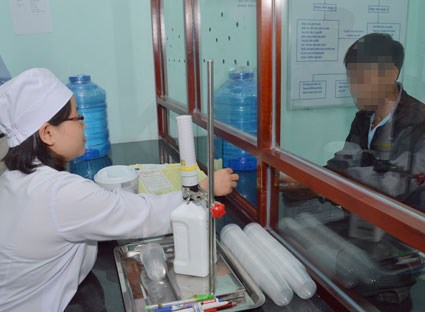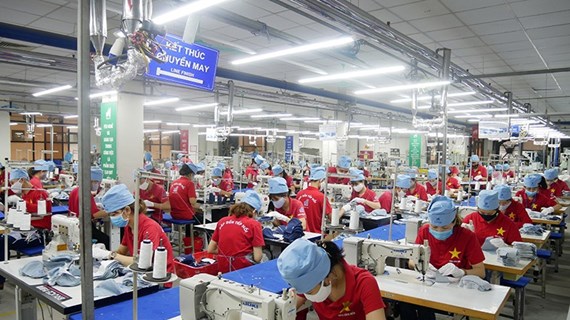Funding shortage hinders Vietnam’s HIV/AIDS fight
Medical experts are concerned that an outbreak of the HIV virus is likely to return to Vietnam any time due to a lack of funds.
 Addicted people is treated by methadone in southern Ba Ria Vung Tau province. (Source: baobariavungtau.com.vn)
Addicted people is treated by methadone in southern Ba Ria Vung Tau province. (Source: baobariavungtau.com.vn)A funding shortage could open the way to a potential health catastrophe, said Nguyen Hoang Long, Director of Ministry of Health's Department of HIV/AIDS Prevention and Control, at a workshop held in Hanoi last week to design an HIV/AIDS Prevention for the 2016-2020 period.
It is estimated that Vietnam will need at least 7.4 trillion VND (329 million USD) for the programme for 2016-20 period but it will lack about 11 percent of the capital. Because the HIV prevention programme will not be a national target programme, it will suffer a big reduction in budget allocation.
About 80 percent of funding for HIV response in Vietnam comes from external donors but the funding will be gradually lowered because Vietnam has now been classed as a middle-income country.
For example, Global Fund to Fight HIV/AIDS will cease funding by 2015, the US President's Emergency Plan for AIDS Relief (PEPFAR) by 2018.
Statistics from the Department of HIV/AIDS Prevention and Control showed that as of June, there were 227,114 people living with HIV in Vietnam. Of these, 71,115 HIV carriers had progressed to AIDS and 76,588 people had died.
The HIV epidemic had spread to 99.8 percent of districts and over 80.3 percent of wards and communes across the country.
Long said ARV drugs could suppress the HIV virus, stop the progression of HIV and reduce HIV infections in the community.
During the 2011 to 15 period, the country saved 150,000 people living with HIV from fatalities and helped 400,000 people avoid HIV infection.
Long said about 98,000 people with HIV had received free ARV treatment in the country to date. He said it cost about 420 billion VND (19 million USD) a year to treat 98,000 people with HIV.
Thus, the cost for medical treatment for one person treated with ARV was about 4 million VND (181 USD) a year.
"As funds dry up, many HIV carriers may abandon treatment because they cannot afford it, raising the risk of those with HIV progressing to AIDS.
"Finding alternative sources to maintain the provision of HIV related goods and services is crucial," he said.
Long stressed the need for increased budget allocation for HIV/AIDS prevention in the coming years.
According to the HIV/AIDs prevention plan for 2016 to 2020, Vietnam will focus on keeping the rate of new HIV cases below 0.3 percent by 2020, while reducing the impact of HIV/AID on socio-economic development.
The plan includes national targets of 80 percent of the population aged between 15 and 49 having adequate knowledge of HIV, 80 percent of the population not discriminating against people living with HIV, and 90 percent of people living with HIV understanding their condition and receiving antiretroviral (ARV) treatment.
HIV/AIDS prevention in the future will focus on providing sterile syringes for drug users, especially those in mountainous and far-flung areas, expanding the use of new and traditional medicine in detoxification.
It also concentrates on studying and applying preventive measures against HIV and expanding the number of HIV testing clinics nationwide.-VNA













